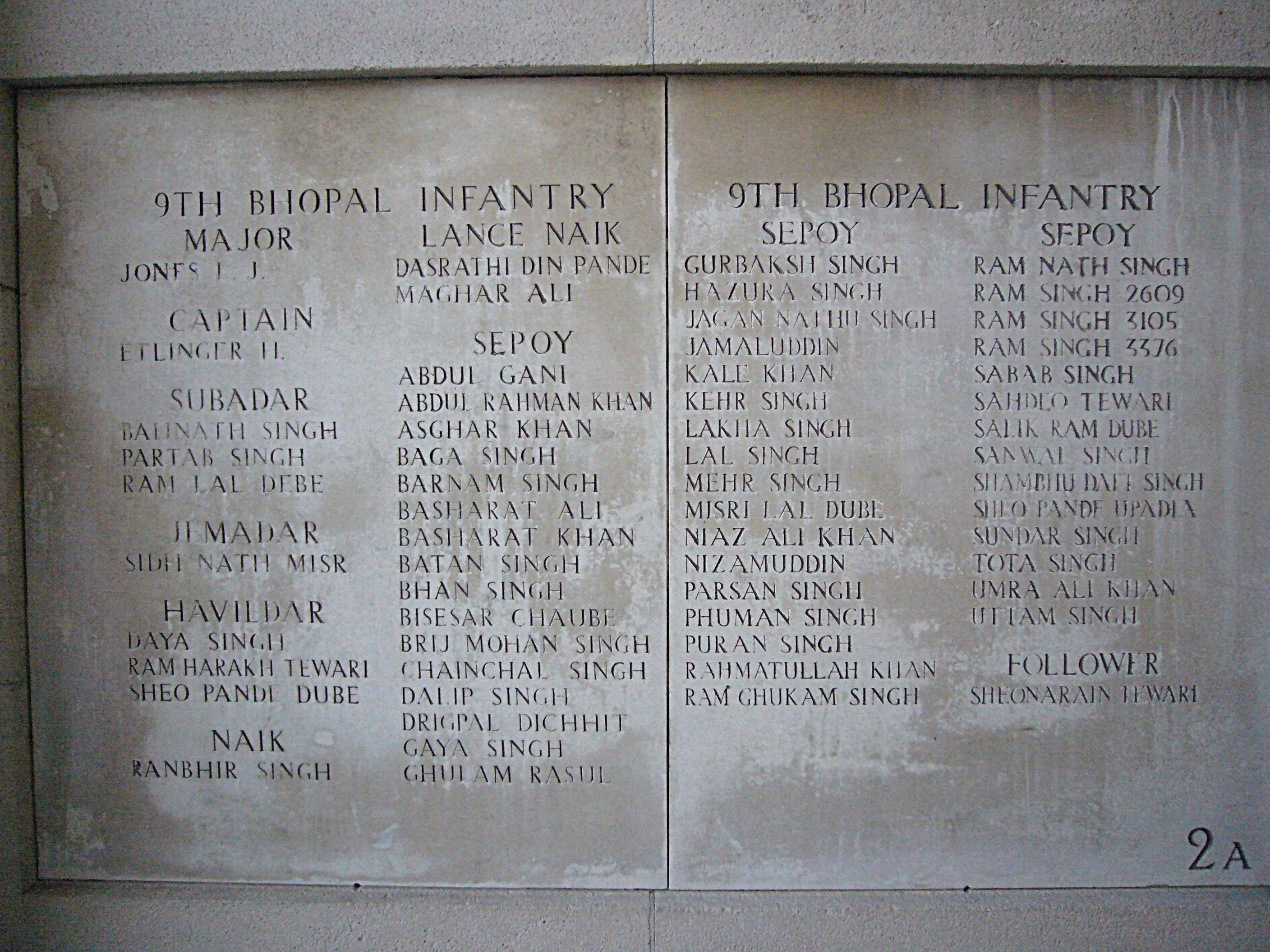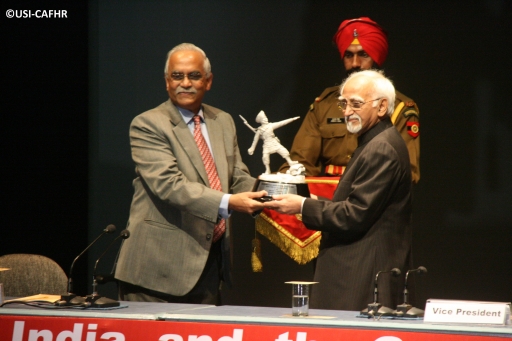India’s Vice-President, Mohammad Hamid Ansari, says the Centenary should be used to discover the stories of rank-and-file soldiers in the colonial Indian Army who made a substantial contribution to Britain’s campaigns during the First World War.
Describing the Great War as a “watershed” moment in the struggle for independence, Mr Ansari told academics and military experts that it was time to redress a “glaring gap” in the understanding of this period of Indian history.
He was opening an international conference on ‘India and the Great War,’ held in New Delhi from March 5th-7th 2014, by the United Service Institution of India-Centre for Armed Forces Historical Research.
More than one million troops and other personnel from undivided India (now India, Pakistan and Bangladesh) were sent overseas to support the British war effort. Sixty thousand of them never returned.

Names of Indian Army soldiers who have no known grave, inscribed on the Menin Gates, Ypres
Indian forces saw action on many fronts, fighting German troops in France, Belgium and East Africa, and the Ottoman Empire in the Middle East and Gallipoli.
Vice-President Ansari said the story of the Indian Army in the First World War deserved to be unravelled from the larger official accounts of the conflict: “There are almost no records that preserve the subaltern voice of the Indian rank-and-file, apart from the fortuitous collection of letters passed down by the Indian censors in France.”
“The various narratives get a human touch by the accounts of a few British officers of the Indian Army, who recount the doings of their men in passing.”
“This impressive and knowledgeable gathering of scholars and soldiers will serve as a good starting point for redressing this glaring gap in our understanding of that period of history.”
Mr Ansari pointed out that most Indian political leaders supported joining the war in 1914 in the hope of gaining self-government, only to be disillusioned later: “The major impact of the First World War, and its aftermath, was the realisation by the Indian nationalist movement that the British were not going to live up to the promises of representative self-rule which they had made during the war.”
The result, he said, was a shift in nationalist aspirations from home rule within the British Empire, to complete independence, a goal which was realised almost three decades later in August 1947.
*The statue presented to Vice-President Ansari is a replica of a First World War regimental statue of the 14th King George’s Own Sikhs. A bronze version was presented to all officers of the 14th Sikhs after the war. The 14th Sikhs fought on the Gallipoli peninsula in 1915. The original statue is still in the regimental mess of 4 Mechanised Infantry (1 Sikh) of the Indian Army. Mr Ansari is pictured with Lieutenant-General PK Singh (retired), Director of the United Service Institution of India.
Source: Indian Vice-President’s website
Date of speech: March 5th 2014
Images courtesy of United Service Institution of India-Centre for Armed Forces Historical Research, and Peter Alhadeff, Centenary News
Posted by Peter Alhadeff, Centenary News
